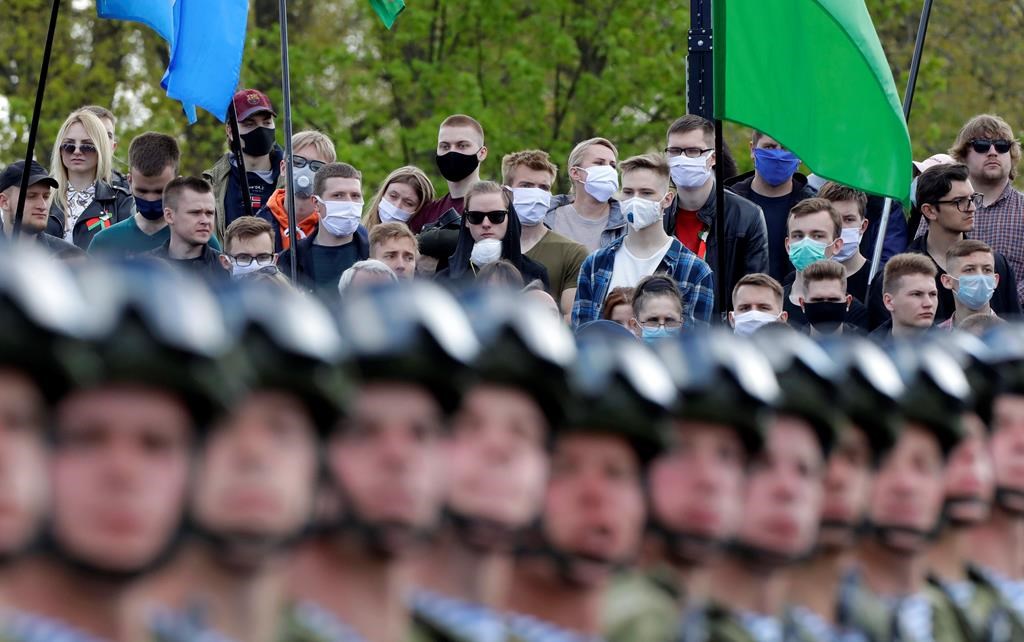As more countries look to reopen their economies, coronavirus outbreaks in South Korea and Germany underscore the dangers authorities face. South Korea’s capital closed down more than 2,100 bars and other nightspots because of a new cluster of coronavirus infections, while Germany scrambled to contain fresh outbreaks at slaughterhouses.
The developments come even as hard-hit Italy saw people return to the streets during the first weekend they were allowed outside for more than just work and basic necessities. And in Belarus, tens of thousands of people attended a parade to mark the anniversary of the defeat of Nazi Germany in World War II.
Here are some of AP’s top stories Saturday on the world’s coronavirus pandemic. Follow APNews.com/VirusOutbreak for updates through the day and APNews.com/UnderstandingtheOutbreak for stories explaining some of its complexities.
WHAT’S HAPPENING TODAY:
— The economic devastation has upended the U.S. presidential campaign, forcing President Donald Trump to overcome historic headwinds to win a second term.
— Some U.S. governors are seeking to bolster their home-state production of vital medical supplies and protective equipment after difficulties in buying such items during the pandemic. Meanwhile New York Gov. Andrew Cuomo is coming under increasing criticism because his state leads the nation in nursing home deaths.
— Tens of thousands of crew members are stuck aboard cruise ships, weeks after passengers were allowed to disembark amid the coronavirus pandemic.
— Egypt’s president has approved an expansion of his powers that the government says is needed to contain the coronavirus outbreak. The international group Human Rights Watch has condemned the changes.
— Some small Native American villages in the southwestern United States are embracing extraordinary isolation measures that include guarded roadblocks to turn away outsiders.
___
WHAT YOU NEED TO KNOW:
For most people, the coronavirus causes mild or moderate symptoms, such as fever and cough that clear up in two to three weeks. For some, especially older adults and people with existing health problems, it can cause more severe illness, including pneumonia and death. The vast majority of people recover.
Here are the symptoms of the virus compared with the common flu.
One of the best ways to prevent spread of the virus is washing your hands with soap and water. The U.S. Centers for Disease Control and Prevention recommends first washing with warm or cold water and then lathering soap for 20 seconds to get it on the backs of hands, between fingers and under fingernails before rinsing off.
You should wash your phone, too. Here’s how.
TRACKING THE VIRUS: Drill down and zoom in at the individual county level, and you can access numbers that will show you the situation where you are, and where loved ones or people you’re worried about live.
___
ONE NUMBER
— 5: Sweden’s Public Health Agency says Somali Swedes made up almost 5% of all COVID-19 cases in the country, yet represent less than 1% of its population of 10 million people.
IN OTHER NEWS:
— LAWN WEDDINGS: Couples with dashed wedding plans have been tying the knot on those tidy green spreads instead.
— TURKEY HUNTING: This is one spring tradition that didn’t get cancelled.
___
Follow AP coverage of the virus outbreak at https://apnews.com/VirusOutbreak and https://apnews.com/UnderstandingtheOutbreak
The Associated Press







